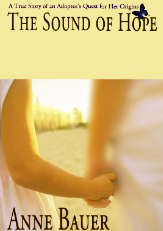 Greetings and welcome to this stop on the The Sound of Hope Book Tour!
Greetings and welcome to this stop on the The Sound of Hope Book Tour!
This is my fourth time participating in a book tour. My previous experiences were with Eat, Pray, Love, Life from Scratch and A Gift of Time.
For those of you not familiar with book tours, they are essentially online book clubs. On a given date the tour leader, in this case Lori from Lavender Luz, who is a newly published author herself, collects one or more questions from each reader. Soon after that we all receive a list of questions (that were posed by our fellow book club members, each participant submits at least one question) from which we are to choose three to answer on our blog in a post, such as this. For this tour there are two groups (A & B). From what I understand for this tour there were two different lists of questions that were given to members of the two groups. Group A (of which I am a part of this time) is posting their answers on their blogs today (Tuesday) and Group B will do so on Thursday.
Life has been a whirlwind lately and I didn’t have time for a book tour, but somehow ended up signing on to participate anyway. It was a combination of Lori selling me on The Sound of Hope: A True Story of an Adoptee’s Quest for Her Origins by Anne Bauer in her introductory post and the fact that I was one of two giveaway winners (who commented on the post) sent a copy of the book autographed by the author. This is an excerpt from a comment I left on Lori’s post, which explains what intrigued me about The Sound of Hope:
You had me at, “Anne Bauer’s book title refers to a certain musical starring Julie Andrews that premiered shortly before the author was born, songs from which are interwoven throughout the narrative, sometimes in surprising ways.” I am fascinated to see how she does that!
I do love a good book tour, not to mention reading memoirs. I also like to try to understand as much as I can about all aspects of adoption being the aunt of two adopted children and friends to numerous adult adoptees.
As it turns out The Sound of Music references weren’t quite what I expected and neither was Anne Bauer’s book. But I still found The Sound of Hope interesting and enlightening. Anne certainly has a compelling story, one that anyone connected with adoption can appreciate and learn from. Though I didn’t always feel a strong connection with her voice, there were parts of Anne’s book that moved and resonated with me.
As I have shared openly here on my blog (with permission) in recent years, I am a proud aunt to my sister and brother-in-law’s two children (a daughter and a son) who they adopted domestically soon after they were born in 2010 and 2012. That connection, along with growing up with close friends who were adopted and being a part of the Adoption/Loss/Infertility community online has helped me to understand and become more sensitive to the “adoption mosaic,” as Lori refers to it.
So going into reading this book I didn’t need to be convinced of the merits of open adoption. However, I also didn’t realize how the old school way of thinking about the adoption process still effects so many adoptees, as well as their adoptive parents and first parents. In addition to that, I wasn’t aware how many states still make it so difficult for adoptees to have access to their original birth certificates.
Another thing that drew me to this book is that I love to read memoirs. I have always been fascinated by people’s life experiences, especially how their formative years impact who they become as adults. Also, since I am working on my own memoir, albeit very slowly, I appreciate reading others’ to get sense of various approaches, voices and styles that authors use to tell their own personal life stories.
And now, without further ado, here are the three questions I chose to consider and my answers to them (please feel free to comment and share your thoughts about the questions and/or my answers):
Question 1: I was struck by how differently the many adoptees in the book (Bauer, her brothers, her adoptee friends) approached the possibility of finding their birth parents. While I totally understood the author’s need to find her birth parents I was surprised that other adoptees didn’t feel that same urge, or that it was trumped by guilt or ambivalence. Did you identify more with the author’s drive to find her parents at any cost or did you better understand better the other adoptees’ ambivalence? Why?
I absolutely identified more with the author’s drive to find her parents. Though I do respect the choices of the adoptees who appeared to be more ambivalent (though I wouldn’t describe them quite that way). I have always been a very curious person, especially when it comes to my family history and genealogy. I love researching my extended family tree and hearing stories about my ancestors. I can’t imagine what it feels like to grow up not knowing much, if anything, about those who gave you life. Though of course not being an adoptee, I can’t say for sure. I imagine that if I were adopted and did not know the identity of my first parents, I would be more like Anne, going to great lengths to try to track down and connect with them.
I did find it interesting, as well as heartbreaking, to learn about the guilt that surrounds most everyone in the adoption mosaic. I am not sure how much I had ever thought about that before. On page 216, Anne talks about how,
“Not once did anyone consider what was best for me…. I was at the heart of (the whole adoption drama)–but no one seemed to recognize that.”
This baffled me.
Again, I have the benefit of being a thirtysomething adult in an age when open adoption has become more accepted and even the norm. But it was still hard for me to think about what Anne went through, trying to make all of the parents in her life happy, when it seemed so clear the focus should be reversed.
I remember when my sister and brother-in-law were matched for an adoption awhile back which fell through. Before the first parents decided to keep their baby girl, it was unclear what the outcome might be. My family was in touch with Lori (who is my friend and our awesome book tour host), as we knew she had both first-hand knowledge as an adoptive mother and is considered an expert on open adoption.
Lori was able to counsel my sister, brother-in-law, and really our entire family, on a perspective that might not have otherwise occurred to us, as we waited to find out if the baby girl’s first mother and first father had decided to parent her. Lori suggested that we all try to look at the situation from the point-of-view of the baby and just how loved that little girl is. We all found that to be such wonderful and ultimately healing advice.
I hope and pray that going forward more families in the adoption mosaic (you can see how much I like that terminology) will embrace the idea that when making decisions about parenting what’s best for the baby should come first. More and more, as I understand it, what is best (when possible) is an open adoption in which children understand from the very beginning just how loved and wanted they are by all of their family members, including both their adoptive parents and their first parents.
Question 2: The woman’s maternal adopted grandfather obviously had serious alcohol problems. It didn’t appear to be any hush, hush big secret over the years. But none of the family members seemed to ever define it as alcoholism. As a society, when did we start labeling it as alcoholism, a serious, hereditary disease?
I noticed this too and if I recall correctly, the word alcoholic only came up once in the entire book. Coming from an extended family in which alcoholism has been prevalent and labeled as such for many generations, I was surprised that the disease was not addressed more specifically, in light of Anne’s family members that appeared to struggled so much with their addictions. I was sharing this observation with my husband and wondering aloud to him, why that was the case. He wisely suggested that maybe it was because, from what I shared with him, that none of Anne’s loved ones who may be alcoholics ever got sober and joined a 12 step program to help them in their recovery.
So to me the question is not when did we started labeling alcoholism for what it is. Rather, until a family or a person realizes that there is a problem with/addiction to alcohol and chooses to get help, the terminology is less important. To be clear, I don’t think a practicing alcoholic has to get sober for a family to get the help they need. As anyone familiar with 12 step programs can speak to, in addition to Alcoholics Anonymous (AA), there being many successful and helpful support groups for those who love and care about alcoholics, including Alanon, Alateen, and Adult Children of Alcoholic (ACA). I often thought while reading The Sound of Hope about how things might have been different if Anne and her maternal grandmother, along with her mother, father and her brother who did not seem to have a drinking problem, could have benefited from participating in Alanon or Alateen to help them to cope.
Question 3: After (their) reunion, when her birth mother want to hear that Anne had a good life, Anne allows Jo to believe she did. But she asks herself, “I thought about the nuns and how they hid the pregnant girls. Was I any better than they were, covering up the mistakes of others with lies?” Do you see any differences between the nuns’ lies and Anne’s?
This question struck me while I was reading The Sound of Hope, but it was the last sentence in the same paragraph, which this quote comes from, on page 171, that seemed even more profound. It reads,
“Wasn’t it the motive behind each action that mattered?”
That is something I have often pondered and struggled with in my own life.
When loved ones are dishonest and/or do other things which may hurt our feelings, does it matter if they had good intentions?
I think good intentions/motives do matter. I think they matter a great deal. That doesn’t mean I believe that those who lie and or hurt us deserve a pass on their words and behavior, just because they meant well. There should be consequences for our behaviors. But the older I get and the more life experience I have, the better able I am to try to see another’s point of view and picture myself in their shoes before I am so quick to pass judgment.
Likewise, when I have told lies in my life or hurt others’ feelings, I know that in almost every case I was not trying to hurt anyone and believed what I was doing or saying was with the best of intentions. The more mature I get and the more I marinate (as a friend recently referred to the process of aging and becoming more wise), I also find it easier to take responsibility for my words and actions. This includes apologizing to loved ones when I have hurt them, even if especially when it is inadvertent.
So to answer the original question more directly, no, I don’t see a big difference between the nuns’ lies and Anne’s, because I believe their motives were pure, inspired by their kind hearts and compassionate minds. It seems to me they were making the best decisions they could with the information they had at the time. I believe that is all any of us can do or strive for.
To continue to the next leg of this book tour, please visit the main list at LavenderLuz.com
Thank you for reading my thoughts on The Sound of Hope and my answers to the questions I chose to answer for the book tour. I look forward to your comments.
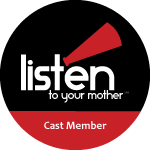






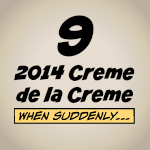

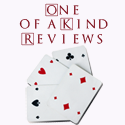
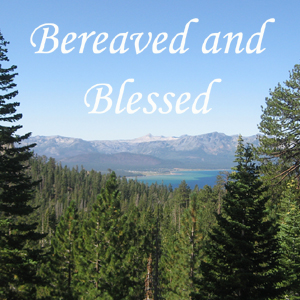
{ 12 comments… read them below or add one }
First of all, I apologize that the link I gave Kathy was incomplete. The rest of the tour can be gotten to via http://lavenderluz.com/2013/04/adoptlit-sound-of-hope-book-tour.html.
I really like the questions you answered, Kathy — one of them is mine :-). Like you, were I an adoptee, I would more likely wonder about my origins (the way Anne did) than not (the way her brothers didn’t).
And your point about intentions is well-taken. What I often wonder is whether or not the nuns and others involved in the Baby Scoop Era were really intending to do what was best for the child at the center, or were they imposing some type of justice? There was such shame about getting pregnant out of wedlock and sometime it seems almost as if taking the baby away was as much to punish the mom as it was to “save” the baby from a life of shame.
But I could be colored now by the latest adoptlit book I’m reading, Orfan, introduced to me by Laura Dennis, whom you will probably meet on this tour.
So glad to have you here, and can’t wait to read YOUR memoir!
Lori Lavender Luz recently posted..AdoptLit: Day 1 of the Sound of Hope book tour
Looking decades back, I wonder… at what point is forgiveness achieved? Can the healing come? Picking up on Lori’s point, it’s hard to imagine the nuns’ and others’ intentions. Our world is so different today. I will share that my kids know their stories, however they differ greatly in how they feel about searching. Regardless they are aware that we will support them if they choose to do so. Adoption is so darned complex, and openness—having the honest conversations about the facts (if known) go a long way towards healing. Parents need to realize that they lose; everyone loses, when the child doesn’t have access to or feels shame when asking about their story. In the end, it’s all about the child…
Yes, for me, I have seen the pain caused by secrets and lies and ‘good intentions.’ I agree with Judy, the world is so different today with regards to unwed mothers, yound moms, etc. The problem remains for adult adoptees who are still suffering from the fallout and remaining secrets and lies. It is so heartening to be around those involved in open adoptions, who want to hear from adoptees like me…. You’d be surprised how much this isn’t the case among the general population.
Thanks everyone, and glad to be a part of the book tour!
Laura
Laura Dennis recently posted..Adoptee memoir–The Sound of Hope
I am so thankful that adoptees are talking, and even more thankful that parents who’ve adopted are listening. It is all about the child. As I’ve stated before, “Much can be learned from listening to and dialoging with older adoptees. I believe that parents can gain a deeper understanding and empathy, for what their child may be feeling or grow to feel as they come to understand what having been adopted means and how it has and will continue impact them and future generations.” (http://judymmiller.com/2012/01/lost-and-found-the-adoptee’s-voice/)
Judy recently posted..The Sound of Hope
I have learned so much from adult adoptees, and their perspective (I hope) makes me better able to support my children in their journey to understanding their stories.
I love your summary of the book and the answers you gave to the questions: really thoughtful and thought-provoking.
The bit about intentions is particularly worth thinking about. I am a pretty forgiving person in general (I’ve been lucky with people, so I know I come from a place of privilege here) but I never stopped to wonder about people messing up despite their best intentions…I’ll be thinking about this for a while.
Jjiraffe recently posted..Kevin Ware, Violence in Sports and Should Kids Be Allowed to Watch?
I’m glad this was one of the questions posed to the group about people’s intentions and if it’s okay to ‘bend the truth’ in order to protect someone. I actually think the majority of people do act with good intentions. Very few act with intent to cause harm, etc… and I think most people who do harm just don’t know any better or they do it out of fear. At the time when I was born, the nuns were very concerned with the stigma of illegitimacy, which was very real back then and an awful thing to bear. I think it was believed that if you tried to hide the child’s adoption by having them look like the adoptive family then it would be easier to hide and the child wouldn’t be embarrassed. Of course, today, this is no longer an issue so there isn’t really any reasons left to lie. However, the laws do have to catch-up by allowing adult adoptee’s access to their own information because originally the orignal birth certificates were “sealed” to protect the new families and shield the burden of illegitimacy.
Anne Bauer recently posted..AdoptLit: Day 1 of the Sound of Hope book tour
I think the issue of searching is an interesting one — both from the perspective of an adoptee’s own desire to know (or lack thereof) and from the perspective of how society views it. Despite open adoptions being more common, I think there’s still a perspective among those not directly involved in the adoption triad that searching is somehow disrespectful or hurtful to the adoptive parents. I’ve been asked before by people if I’m bothered by the fact that my children have contact with their birth mom — or even why I allow that. They’re surprised when I say that I would actually welcome more contact with my children’s birth mother — that was certainly an evolution, but I think I’m much more comfortable with contact than she is.
Tonya recently posted..Easter Bunny Confessions
I really enjoyed reading your responses, Kathy. I was reminded, when I read about the advice from Lori when your sister and BIL’s match fell through, of a blog I read years ago. The birth mother changed her mind right after the birth. She decided to parent. The prospective adoptive mother, the blogger, was so angry. She truly felt she had the right to confront this young mother and demand an explanation face to face. I was horrified. Yes, this woman was experiencing awful emotional pain, but that does not even remotely trump the interests of the child.
Dora recently posted..The Sound of Hope Book Tour
I enjoyed your review, Kathy. So much more thoughtful than mine. I had difficulty answering the questions in the end. I think even though I write about our experiences with adoption, the pain is still too raw for me.
My daughter changed her mind a week after signing the relinquishment. Her uncle and aunt adopted her daughter. They did not agree to vacate the adoption and there was nothing we could do legally.
Anyway, I do not understand an adoptee not wanting to search, either. I really only say that because I know I would welcome someone who was adopted out of my family with open arms, but so many adoptees do not get a welcoming response. I can understand an adoptee not wanting to risk rejection again.
“So to me the question is not when did we started labeling alcoholism for what it is. Rather, until a family or a person realizes that there is a problem with/addiction to alcohol and chooses to get help, the terminology is less important.”
Hi Kathy,
Thank you so much for your kind comment on my blog post. Since you’ve done these book tours four times, I love to know about the next one :). I’ve been thinking about your thoughts on alcoholism. I had someone suggest recently that maybe perhaps society didn’t look at alcoholism the way they do now when I was born. So I am really curious about when doctors started labeling it alcoholism and identifying it as a disease. When I contacted my pediatrician listed on my birth mother’s hospital records and I remember him being my doctor until I was the age of 6, at first he said he didn’t want to talk to me. But then blurted out, “I knew your adoptive father had a serious drinking problem; I had nothing to do with your adoption.” That is the first time anybody had spelled out that it was a possibility why my adoption was not above board.
JoAnne Bennett recently posted..My First Book Tour
I was wondering if the reason why the word “alcoholic” wasn’t used was because the family seemed to always project a sense of “perfect-ness” to the outside world. Admitting that you need help, or that someone in your family needs help breaks down the illusion.
{ 3 trackbacks }